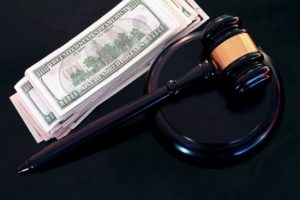
The rule was included in the Dodd-Frank Wall Street Reform and Consumer Protection Act of 2010, and while the SEC proposed a rule to enact the reforms included in the legislation in 2015, they were never finalized. In 2017, the Trump administration ushered in a more business-friendly tone at the SEC and the compensation clawback proposal was put on the back burner.
Now, under the Biden administration and SEC Chairman Gary Gensler, the Commission is looking to revitalize the effort to adopt new rules on clawbacks. Earlier this month, the SEC reopened the comment period for the long-tabled proposed clawback rule from 2015. When the SEC reopened the comment period, Gensler provided support for adopting the rule in a speech during the “SEC Speaks” event. He said he was in favor of the effort to revisit the Dodd-Frank Act rule regarding clawbacks of erroneously awarded incentive-based compensation.
“I believe we have an opportunity to strengthen the transparency and quality of corporate financial statements as well as the accountability of corporate executives to their investors,” said Gensler. “Congress determined that, if a company has to revise its financial statements, executives should have to give back compensation paid in the three years leading up to the restatement that was based on the misstated financials — regardless of whether the misstatement was due to fraud, errors, or any other factor.”
Under the 2015 proposal, the rule would require stock exchanges to obligate listed companies to implement a compensation recovery policy that provides for the company to recoup incentive-based compensation paid to executive officers during the three fiscal years preceding the date on which the listed company is required to prepare an accounting restatement to correct a material error.
SOX Clawback Rule Already in Place
A clawback rule is actually already on the books at the SEC, as one was part of the Sarbanes-Oxley Act passed in 2002 in the wake of massive accounting frauds at the likes of Enron and WorldCom. That law, however, only pertains to CEOs and CFOs and includes far more ambiguities about the circumstances that would require a clawback to occur. Many executives targeted by the rule have effectively sidestepped the law by arguing that the restatement was not a result of any kind of misconduct on their part.
The newly revisited rule pertains to more executives, by including all “Section 16” officers, who are defined as: “president, principal financial officer, principal accounting officer, any vice-president of the issuer in charge of a principal business unit, division or function (such as sales, administration, or finance), any other officer who performs a policy-making function, or any other person who performs similar policy-making functions for the issuer.”
The newly proposed version of the rule also more clearly defines the circumstances under which incentive compensation must be paid back. It also uses a “no fault” determination meaning that the compensation in question must be paid back without regard to whether any misconduct occurred or whether any of the executives were responsible for the misstated financials.
Under the proposal, each listed company must file the clawback policy as an exhibit to its annual report and disclose the company’s actions to enforce the clawback policy, including information regarding completed, ongoing and forgone recoveries.
The comment period will be open for 30 days after the SEC’s release is published in the Federal Register, and is expected to remain open through mid-November. New rules could be in place and effective as early as next year. ![]()
Joseph McCafferty is editor and publisher of Compliance Chief 360°.

